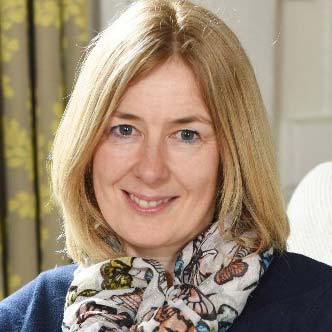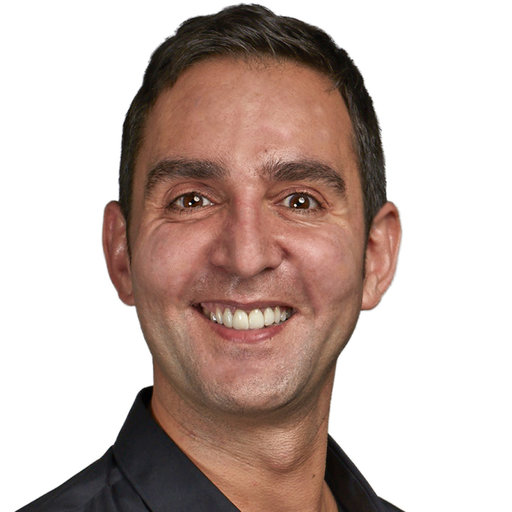Our Experts
When you’re looking for credible information, based on scientific research, well-considered and with a practical slant, then you’re in the right place.
Our expert advisers provide helpful information and advice, and they’re more than qualified to do so. Take a look…
Vitamin C is ascorbic acid which is commonly found in fruit and vegetables especially citrus fruits. It is an essential vitamin for humans and cannot be manufactured in the body so it has to be provided through our diets and the food we each.
Ascorbic acid as the name suggests is acidic and when dissolved in water has a PH of 5. Ascorbic acid is available naturally in its pure form and also combined with minerals such as calcium ascorbate.
Calcium ascorbate has a PH of 7.4 when dissolved in water which means it is very slightly alkali. Calcium ascorbate is simple to produce, calcium carbonate is mixed with ascorbic acid in solution under controlled conditions, the solution is then dried leaving pure calcium ascorbate crystals.
Many companies have started to use calcium ascorbate if their food supplements due to its lower acid content which users often find to be easier to digest and gentle in the stomach.
Care needs to be taken to ensure fully reacted calcium ascorbate is requested as a short cut is it to simply blend dry calcium carbonate with ascorbic acid, however this does not give the required buffering effect.
There are branded and generic forms of buffered Vitamin C the most popular being Ester C, which is backed by extensive clinical research.
Jamie Christie
Nutritional Biochemist, Industry consultant on supplements
I understand your confusion – everyone's a nutrition expert these days it seems! I think the straightest answer is that while it's possible for many people to get the full recommendation of all vitamins and minerals from their diet, not everyone does, and almost certainly not every day. The government's National Diet and Nutrition Survey gives a good clue as to the nutrients and groups that are of most concern - these include vitamin D for every age group, magnesium (low in 25 percent of women aged 19-64) and iron, also low across age groups but particularly in women and girls. Worryingly in women of childbearing age, 89 percent also have a red blood cell folate concentration low enough to put them at increased risk of giving birth to a baby with a neural tube defect, such as spina bifida. Vegans, or those with more plant-focused diets will also not be getting vitamin B12 from their diet. Experts have varying opinions on how to correct micronutrient deficiencies, but a good multivitamin (check it has at least 10 micrograms of vitamin D) is one of the most practical and simple ways to ensure the gaps get filled. But it really is essential that this strategy is combined with a balanced diet rich in fibre, fruit and vegetables, and that also includes some dairy, or else a calcium and vitamin B12-fortified plant alternative.
Angela Dowden
Freelance health journalist / registered nutritionist
If you're lacking motivation to cook and prepare foods, setting goals can be very helpful. A great goal that simplifies things is to eat more variety in your diet, it will get you eating more healthy food, widening your nutrient intake, and push poor food choices out of your diet without you realising it. Try aiming for four different fruits and vegetables daily, and four different types of fresh or dried herbs and spices each day. Write them down and make it a personal daily challenge. If you want to really get some culinary inspiration, then why not go global? Choose a different country for each day of the week, and learn about some new cooking traditions and methods, not to mention new flavours and textures. Food variety is so important because research shows that those who have lower variety and lack the motivation to cook consume lower levels of important minerals, vitamins, and antioxidant nutrients. All the best!
“Water-only fasting – as the name suggests is where you only drink water and take no food whatsoever and, most importantly, you must take complete bed rest. Here are a few water-fasting do’s and don’ts. Firstly, Don’t attempt a fast by yourself – you must be supervised by an expert. This is important as you might need someone to check in with as you progress through this kind of fast. It’s also essential to get clear instructions and guidelines. A practitioner will be able to make sure that you’re thoroughly prepared at every stage. Do check to see if you are suited to fasting – it is not for everyone and there are some conditions for which water-only fasting is contra-indicated. Finally, do rest completely if fasting.”
“Listening to any type of music that you can connect with so that it helps you become calmer, more relax, or to disconnect from your daily sources of stress has been seen to do a number of things to the immune system; it directly affects stress hormone levels, e.g. cortisol, as well as immunoglobulins, proteins that play a role in maintaining healthy immunity. This is not 2020 “new age” stuff. The authors of a clinical trial published in the Journal of Music Therapy back in 2007 looking at the effects of music on anxiety levels concluded that “music is as effective as diazepam” in reducing vital signs of anxiety.
If you find that listening to Metallica makes you feel all mellow and fuzzy inside, then that’s the album you need on repeat. Some will prefer Mozart, and some will prefer house music. Whatever it is that takes you out of that stress / anxiety zone, that’s the kind of music that works for you.”
“The Government advice is to take 10 micrograms daily, especially if you’re one of the many people who spend a lot of time indoors, or didn’t manage to get out into the sunshine much this summer (many of us were in lockdown, so might not have ventured out quite so much). This is in addition to the amount that we typically get from foods in the diet. Food sources include fatty fish and seafood, mushrooms, eggs, fortified foods such as cereals, and red meats.
It’s good to have a wide variety of these in the diet. We know from research studies that a safe upper limit for supplementation is 75micrograms daily, and you might like to speak with a practitioner about the level of vitamin D that’s most suitable for you (especially if you’ve been tested and are vitamin D deficient).
Ask in your local health store about which different vitamin D supplements are available, including those suitable for vegetarians and vegans.”
Ask Your Own Question
Got a question about health food or supplements? We’d love to hear from you. We’re sorry that we can’t answer every question, but we’ll pick one that you should all find interesting…
Angela Dowden
Angela Dowden is an award-winning freelance health writer and registered nutritionist. She has written for many consumer publications, including the Daily Mail, Daily Mirror, Woman’s Own and Mail on Sunday, as well as having authored a number of books relating to diet and the sensible use of supplements.
Dr Marilyn Glenville
Dr Marilyn Glenville PhD is the UK’s leading nutritionist specialising in women’s health. She is the former President of the Food and Health Forum at the Royal Society of Medicine, is a registered nutritionist, psychologist, author and popular broadcaster. She is author of 16 internationally bestselling books.
Jamie Christie
Jamie Christie is a nutritional biochemist with over 20 years’ experience of running a major UK supplement brand and pharmaceutical manufacturing plant, making food supplements for many of the UK leading brands and retailers. He is the founder of Nutrasolve, UK, and a nutritionist with the British Nutrition Foundation.
Jayney Goddard
Jayney Goddard is a pioneer of complementary therapies and is a global authority in this area, bringing her extensive understanding of scientific research to both professional arenas and the public. Jayney is a truly inspirational advocate of all things natural, as seen in her extensive media work, publications, seminars and webinars.
Miguel Toribio-Mateas
Dr Miguel is a clinical neuroscientist who is a real influence on the science of nutrition and the gut-brain connection, applying complex knowledge to therapeutic settings. He’s an Honorary Research Fellow at Cardiff University's School of Psychology. Dr Miguel is a leading light in consumer education and practitioner training. His research has been published in a wide variety of media, from the BBC World to the British Medical Journal.
Patrick Holford
Patrick Holford is a leading spokesperson on nutrition and founder of the Institute for Optimum Nutrition. He is the author of 44 books, translated into over 30 languages. He founded the Institute for Optimum Nutrition in London and the charitable Food for the Brain Foundation.
Rob Hobson
Rob Hobson is a registered nutritionist whose work spans across public health, the NHS, charity organisations and many of the UK’s leading health and wellness brands. Rob is regularly featured in the UK media, having written hundreds of articles for publications including the Daily Mail, Daily Express and Women’s Health, as well as being a regular voice on both radio and TV.
Ben Brown
Ben Brown is a science writer and speaker specialising in nutrition and functional medicine. Ben is Contributing Editor of Integrative Healthcare and Applied Nutrition and Director of Clinical Education for Pure Encapsulations UK. He guest lectures at the Institute of Optimum Nutrition and is the author of The Digestive Health Solution 2nd Ed.
Suzie Sawyer
Suzie Sawyer is a clinical nutritionist, well known for her passion for nutritional science. Able to communicate effectively on many levels, Suzie brings the wonders of healthy eating and supplementation to life. Suzie is widely quoted and has worked effectively in all forms of the media for many years.
Yvonne Bishop-Weston
Clinical Nutritional Therapist, Yvonne Bishop-Weston, has held a variety of key roles in the health industry and profession. As well as practicing as a Nutritional Therapist Yvonne provides corporate health consultancy has co-authored a range of cookbooks. Yvonne can also be seen regularly in the National press and on TV.




